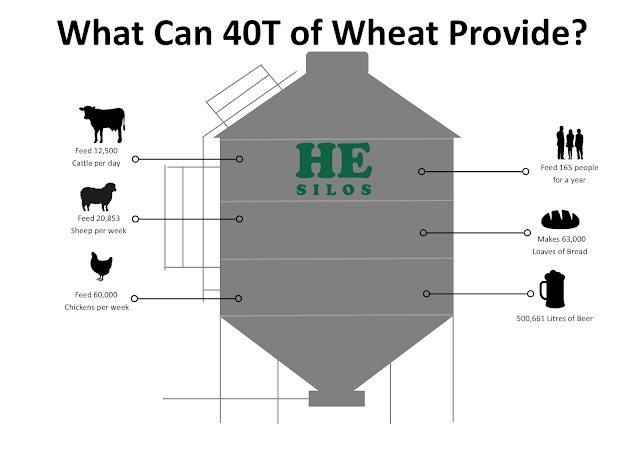How Important is Agriculture During a Crisis?
Hello everyone and welcome back!I’m sorry I have been a little on the quiet side for the past few weeks, things have certainly been busy. Given the current times, I wanted to make it a priority that I jumped on here and had a bit of a chat to you all as the COVID-19 crisis sends shock waves right across the world.
Just about every time you turn on the television the first thing that you’re watching is related to the Coronaviris crisis. We’re possibly moving closer to a full nationwide lockdown and that has been made clear by the steps the Government continues to make by enforcing certain restrictions. There continues to be a major focus on everyone staying at home, but what does that mean for people in the Agriculture industry that fall into the ‘essential services’ category?
The short of it is that we continue on as we usually would but with a few tweaks, obviously remembering to follow all of the Government’s guidelines like practising good hygiene. The big thing we all have to ask ourselves however, is how safe are our production lines?
As things tighten and the severity of this pandemic increases, Australian’s are going to be more reliant on farmers such as yourselves more than ever and it’s our job to step up and make sure we’re keeping up with demands for meat, grains and produce. In order to do that though, we need to ensure our silos and harvesting equipment are being maintained to the highest standard, especially at the moment with so many unwanted germs getting around.
Even once your grain is sealed in a clean silo, that doesn’t mean you can just leave it and forget about it. The only time your silo should be sealed is when you’re fumigating. By sticking to this rule you’ll ensure that when the cooler nights set in, the warm grain inside your silo doesn’t start to sweat and in turn cause condensation. The trouble is once condensation is present in a sealed silo, there’s no way of removing it.
The effects of moisture in a silo on grain is huge. The higher the moisture and temperature inside a silo, the greater risk of rapid pest reproduction and mould growth. It will ultimately cause the quality of your grain to deteriorate which I think we can all agree is the last thing we need at the moment.
The main things to check include the visual appearance of the silo, the smell, the sieve, traps and doors, other storage facilities and any equipment you use to store or move the grain such as your auger.
Make sure you tick off these three things:
- Monitor the grain
- Check your seals
- Pressure test your silo (see my old blog dated January 30 for more info on that)

I have an old blog on moisture migration from earlier this year and not too much has changed so check it out – LINK HERE
Monitoring and checking all of your equipment on a weekly basis is essential, but so too is having aeration on your silo to ensure cooling procedures can take place. Aeration cooling brings the temperature of the grain down. The ideal temperature you want inside your silo is around 15-20 degrees, the grain will be happy at that temperature too.
When put into context, it’s clear why looking after your equipment is so important. Recent grain predictions tell us what 40T of wheat can really do, and believe me it’s impressive. 40T can produce 63,000 loaves of white bread, feed 60,000 people per day or 165 people per day for a whole year, feed 20,853 sheep for a week or 60,000 chickens for a week, and if you’re lot feeding cattle at 200kgs, that’s 12,500 head of cattle for one day.

If those figures aren’t impressive enough for you, how does knowing that Australia’s predicted harvest of 27MT will feed 330 882 325 people for a year. Statistics like that really put things into perspective don’t they?
The main thing to remember during this crisis is to stay level headed, keep on working the way we know how, and to continue to practice good hygiene both personally and somewhat more importantly, in our grain, silos and other equipment.
It is a bit of a scary time given no one really knows what will come nest but one thing we do know is that Australian’s need us now more than ever and it’s our job to be there to keep up with demand like we always do.
Keep yourselves safe and I’ll check back in with you all in a fortnight or so.
For More Information on our Products Visit >>>


